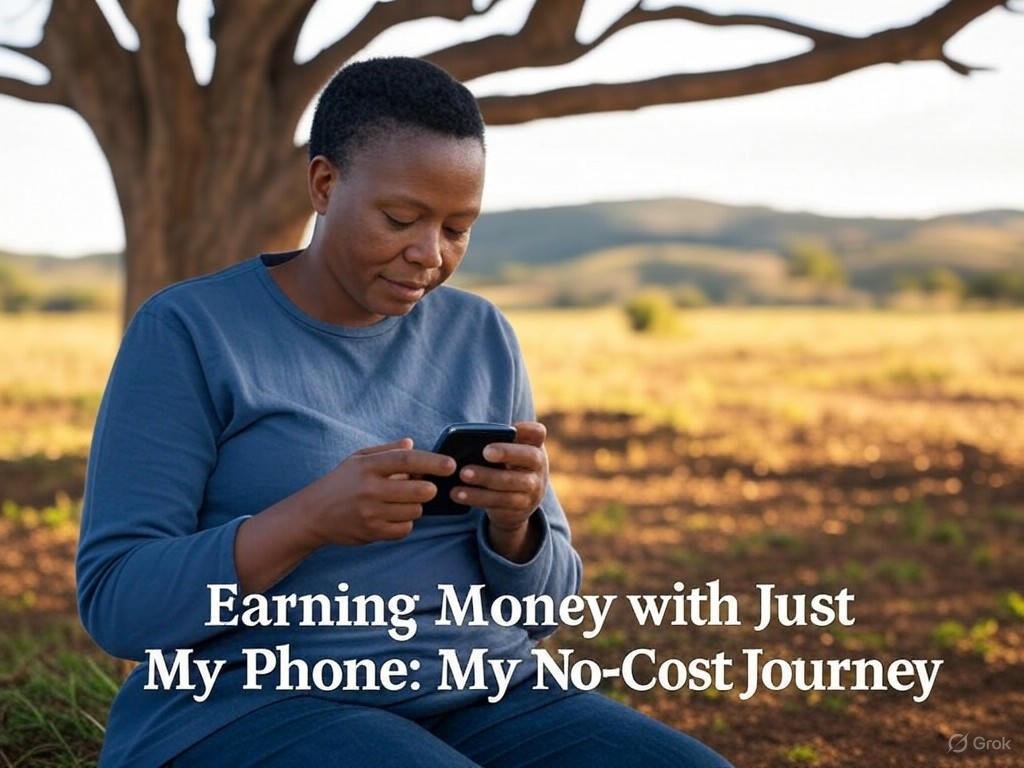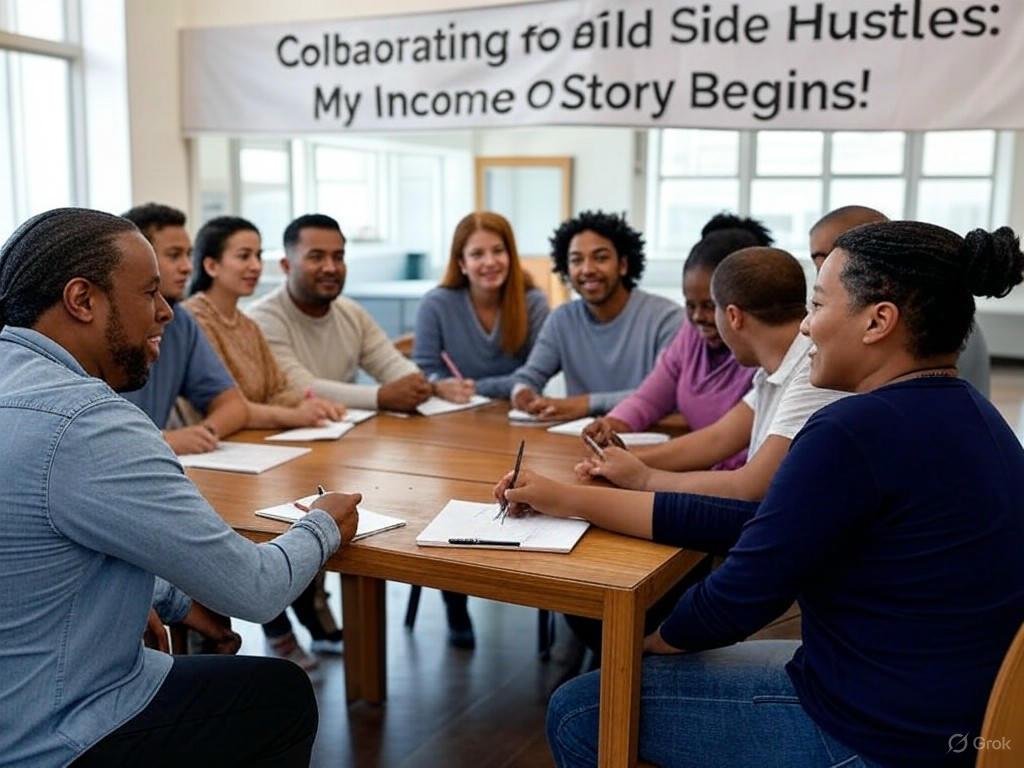I remember sitting at my kitchen table in Johannesburg, staring at a stack of bills, my bank account teetering on the edge of zero. It was one of those moments when life feels like it’s closing in, and you’re scrambling for a way out. Like so many South Africans, I was desperate to find a way to earn extra income in South Africa with no money to start. The idea of making money without a hefty upfront investment sounded like a pipe dream, but I was determined to make it work. Spoiler alert: it’s not only possible, but it’s also more accessible than you might think.
In this article, I’m sharing my personal journey, lessons learned, and practical ways to earn extra income in South Africa without spending a dime upfront. Whether you’re a student, a stay-at-home parent, or someone just trying to make ends meet, there’s something here for you. Let’s dive into the nitty-gritty of how you can start earning extra cash today.
Why Earning Extra Income in South Africa Matters

South Africa is a land of opportunity, but it’s no secret that the cost of living keeps climbing. From skyrocketing petrol prices to groceries that seem to cost more every week, many of us are feeling the pinch. According to recent stats, nearly 50% of South Africans live paycheck to paycheck, and unemployment rates hover around 32%. For those of us without a cushion of savings, finding ways to earn extra income isn’t just a nice-to-have—it’s a lifeline.
When I started my journey, I had no capital to invest. I couldn’t afford to buy inventory for a side hustle or pay for fancy courses promising overnight riches. What I did have was time, a smartphone, and a whole lot of determination. If that sounds like you, keep reading. These methods are grounded in my own experience and tailored to the South African context.
1. Freelancing: Turn Your Skills into Cash
One of the first things I stumbled upon was freelancing. If you have a skill—any skill—there’s likely someone out there willing to pay for it. Writing, graphic design, social media management, or even basic admin tasks can become a source of income. Platforms like Upwork, Fiverr, and Freelancer.com opened doors I didn’t even know existed.
My Experience
I started by offering blog writing services on Fiverr. At first, I was nervous. What if my work wasn’t good enough? But I polished my profile, wrote a compelling description, and set my rates low to attract clients. My first gig paid $10 for a 500-word article. It wasn’t much, but it was proof that I could earn extra income in South Africa with no money upfront. Over time, I raised my rates and built a steady stream of clients.
How to Get Started
Identify Your Skills: Can you write, edit, design, or manage social media? Even skills like data entry or virtual assistance are in demand.
Create a Profile: Sign up on platforms like Upwork or Fiverr. Use a professional photo and write a bio that highlights your strengths.
Start Small: Take on small gigs to build your reputation. Positive reviews are gold.
Be Patient: It takes time to land consistent clients, but once you do, the income can be reliable.
Tips for South Africans
Many international clients pay in dollars, which is a huge plus given the rand’s exchange rate. Just be mindful of platform fees and use a service like PayPal or Payoneer to receive payments. Also, tailor your services to local needs—South African businesses often look for freelancers who understand the local market.
Read more: Online Money Making Opportunities – A Comprehensive Guide to Diverse Income Streams
2. Online Surveys and Microtasks: Small Effort, Small Rewards

If freelancing feels daunting, online surveys and microtasks are a low-pressure way to dip your toes into earning extra income. Sites like Swagbucks, Toluna, and ySense pay you for completing surveys, watching videos, or doing simple tasks like testing apps.
My Experience
I’ll be honest—surveys won’t make you rich. My first month on Swagbucks earned me about R200, mostly from surveys about consumer products. It wasn’t life-changing, but it covered a week’s worth of groceries. What I loved was the flexibility. I could do surveys while watching TV or waiting for a doctor’s appointment.
How to Get Started
Sign Up for Legit Platforms: Stick to reputable sites like Swagbucks, Toluna, or ySense. Avoid anything that asks for upfront fees.
Complete Your Profile: Most platforms ask for demographic info to match you with relevant surveys. The more details you provide, the more opportunities you get.
Be Consistent: Set aside 30 minutes a day to complete tasks. The small earnings add up over time.
Cash Out Wisely: Many platforms offer gift cards or PayPal payments. Choose options that work for you.
Tips for South Africans
Survey opportunities can be limited in South Africa compared to the US or UK, so sign up for multiple platforms to maximize your chances. Also, watch out for scams—never share sensitive info like your ID number or bank details.
3. Selling Unused Items: Cash in Your Clutter
One person’s trash is another’s treasure, and South Africa’s online marketplaces make it easy to turn unused items into cash. Platforms like Gumtree, Yaga, and Facebook Marketplace are perfect for selling clothes, electronics, or furniture you no longer need.
My Experience
I had a closet full of clothes I hadn’t worn in years. On a whim, I listed a few items on Yaga, a South African platform for pre-loved fashion. To my surprise, I sold three dresses in a week, earning R450. It was enough to cover my electricity bill, and it felt amazing to declutter while making money.
How to Get Started
Take Stock: Go through your home and list items in good condition. Clothes, books, and electronics are hot sellers.
Take Good Photos: Clear, well-lit photos make a huge difference. Use natural light if possible.
Write Detailed Descriptions: Be honest about the condition and include relevant details like size or brand.
Price Competitively: Check similar listings to set a fair price. Be open to negotiation.
Tips for South Africans
South Africans love a bargain, so price your items slightly lower than retail to attract buyers. If you’re in a city like Cape Town or Durban, consider offering meet-up options for local buyers to save on shipping costs.
Read more: AppOwls24 review – Insights into Seamless App Management
4. Tutoring or Teaching Online: Share Your Knowledge
If you’re good at something—math, English, coding, or even guitar—online tutoring can be a goldmine. Platforms like Preply, iTalki, and TutorMe connect tutors with students worldwide, and you don’t need a teaching degree to start.
My Experience
I’ve always been a bit of a grammar nerd, so I signed up on Preply to teach English conversation. My first student was a businessman from Brazil who wanted to improve his fluency. I charged R150 per hour, and within a month, I had five regular students. It was rewarding, both financially and emotionally.
How to Get Started
Choose Your Niche: Focus on subjects or skills you’re confident in. English tutoring is especially popular in South Africa due to our bilingual population.
Set Up a Profile: Platforms like Preply let you create a profile with a video intro. Be friendly and approachable.
Invest in Basics: A decent headset and stable internet are all you need. Most platforms handle scheduling and payments.
Market Yourself: Share your profile on social media or local community groups to attract students.
Tips for South Africans
South Africa’s time zone (SAST) aligns well with Europe and parts of Asia, making it easier to schedule sessions with international students. Also, consider offering group classes on platforms like Zoom to maximize your earnings.
5. Affiliate Marketing: Earn While You Share
Affiliate marketing is a way to earn commissions by promoting products or services. You share a unique link, and when someone makes a purchase through it, you get a cut. It’s a fantastic way to earn extra income in South Africa with no money upfront, especially if you’re active on social media or have a blog.
My Experience
I started experimenting with affiliate marketing through Amazon’s Associates program. I created a small Instagram page where I shared budget-friendly home decor tips, linking to products on Amazon. My first commission was just R50, but it grew as I learned to target my audience better. Today, affiliate marketing brings in a steady R1000 a month.
How to Get Started
Join Affiliate Programs: Amazon, Takealot, and Superbalist offer affiliate programs tailored to South Africa.
Choose a Niche: Focus on a topic you’re passionate about, like fitness, tech, or fashion.
Create Content: Share reviews, tutorials, or recommendations on social media, a blog, or YouTube.
Track Your Links: Use tools provided by affiliate programs to monitor clicks and earnings.
Tips for South Africans
South Africans are savvy shoppers, so focus on promoting products with good value. Also, leverage local platforms like Takealot for higher conversion rates, as many prefer shopping locally.
Read more: Legit Site to Earn Money – Your Proven Path to Financial Growth
6. Gig Economy: Quick Cash for Quick Tasks
The gig economy is booming in South Africa, with apps like Uber Eats, Bolt, and TaskRabbit (or local equivalents like SweepSouth) offering opportunities to earn money on your terms. While some gigs require a car or specific equipment, others are accessible to anyone with a smartphone.
My Experience
I tried my hand at SweepSouth, a platform for domestic cleaning gigs. I didn’t need to invest anything except my time and effort. My first booking paid R200 for a four-hour job. It was hard work, but the flexibility allowed me to fit it around my schedule.
How to Get Started
Choose a Platform: Sign up for apps like SweepSouth or Mr D Food (for food delivery).
Complete Training: Most platforms offer free onboarding to get you started.
Be Reliable: Show up on time and do quality work to earn good reviews and more gigs.
Stay Safe: Always follow safety guidelines, especially for in-person gigs.
Tips for South Africans
The gig economy is competitive in cities like Pretoria and Johannesburg, so focus on building a strong profile with great reviews. Also, consider combining multiple gigs (e.g., delivery and cleaning) to maximize your income.
Overcoming Challenges and Staying Motivated
Earning extra income in South Africa with no money isn’t always a walk in the park. There were days when I felt discouraged—gigs dried up, or clients were slow to pay. But I learned that consistency is key. Set small, achievable goals, like earning R500 in your first month, and celebrate every milestone.
Another challenge is avoiding scams. South Africa’s online space is rife with “get-rich-quick” schemes promising thousands overnight. If it sounds too good to be true, it probably is. Stick to reputable platforms and do your research before signing up.
Finally, don’t underestimate the power of community. Join Facebook groups or WhatsApp chats for South African freelancers and side hustlers. Sharing tips and encouragement with others kept me going when times were tough.
Final Thoughts: Your Journey Starts Now
Looking back, I’m amazed at how far I’ve come. From scraping by to building a side income that gives me breathing room, the journey has been worth every late night and every lesson learned. Earning extra income in South Africa with no money is not just possible—it’s a reality for thousands of people like you and me.
Whether you start with freelancing, surveys, or selling old clothes, the key is to take that first step. You don’t need a fancy degree or a fat bank account. All you need is a willingness to try, a bit of creativity, and the grit to keep going.
So, what are you waiting for? Grab your phone, pick one of these ideas, and start your own journey to financial freedom. I’m rooting for you.




